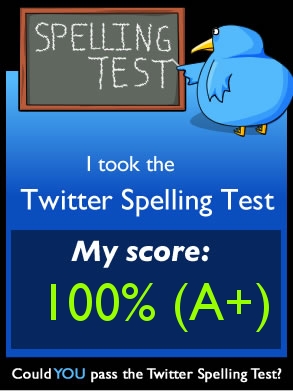As the mid year holidays commence I am drawn to reflection on my teaching journey so far, and the one ahead.
These five reflections are all things that I 'knew' to be true at the beginning of this year, but it is now, after 6 months of teaching, that they come into actualisation, and I 'realise' them to be true.
1. Make mistakes. Often.
Fear of failure is a real thing. As a teacher, I fear when a lesson I have prepared flops, I fear learners not being engaged, I fear failure in my post-grad university papers, I fear rejection from friends and colleagues.
This is natural and our learners also fear failure. And that is OKAY. One of the most difficult things to learn is resilience therefore, modelling failure is important for our learners. Then they can learn how to bounce back from that, and how to turn that into learning.
Some of my learners participated in a chess tournament, and while one found success the other didn't fair as well. Seeing the disappointment in his face I shared my own recent 'failure' and disappointment. Having received a less than pleasing mark on my university assignment I had reflected on my essay topic and upcoming assignments and realised it to be a poor choice, resulting in a low grade. However, I had learned some valuable things, and gained insight into the bigger picture. I discussed this with the learner who had lost at chess, and together we determined that although he had lost the game, he had in fact learned a lot about the rules of play, and was now more prepared for future games, than had he won.
Learning from our mistakes is something we often say, but is often not truly understood. Making mistakes in a variety of contexts, and being able to truly reflect, learn from, and if all else fails, laugh about them. It's what makes us human.
2. Discipline. Be firm, but fair.
An experienced teacher once told me, that there's a great skill in being able to reprimand a child, while still letting them know that you care about them. You can smile even if you have to talk to a learner about their behaviour.
Remembering that we were all once children, and taking discipline light heartedly is important for the learner's and my own psyche. You do need to be firm but fair. And remember it's the behaviour that's upsetting, not the person.
Just yesterday I had to remove a child from the touch game. I'd no more than 30 seconds earlier reminded them that we were playing touch, and I didn't want to see any tackling, that if anyone did tackle, they would receive time-out. When the child tackled his classmate, I reminded him again this was unacceptable, and asked him to sit out for 2 minutes. 5 minutes later he hadn't returned and was sulking on the sideline. I went up to him and explained that I wasn't angry at him, but that I'd warned of the consequences, so had to follow through with them, otherwise they would be pointless. I told him that I wasn't mad at him, and didn't hold a grudge towards him, so he shouldn't hold one towards me either. He was then able to happily carry on with the game.
3. Be prepared, but not too prepared.
It is crucially important that we are prepared for the lesson/day/week/month and term with our learners. We need to know the bigger picture and what the main learning outcomes are for our learners. We need to have a variety of resources and activities ready to go that will motivate, engage and challenge our learners.
However, we cannot script teaching. Ako, as in the title of my blog, sparkAKO, is a Māori term about the reciprocal process of teaching and learning. Just as we need to be prepared to teach a variety of experiences our learners need to come prepared to engage with the experiences. And what motivates their learning may be different from what I, their kaiako had intended. Therefore we need to allow ākonga, learners to take charge of their learning. Allow them voice, and choice over how and what they learn.
Being flexible with planning a rich curriculum allows learner input, drive, and often richer learning.
4. There is always something to be done, including 'me' time.
But, don't sweat the small stuff. Coming from a corporate background I used to sometimes, not always, go home from work and switch off. Work rarely came home with me, figuratively speaking. However, in teaching, teachable moments are everywhere! If I'm not seeing things through a potential learners eyes, I'm working through a never-ending to-do list. But one of the things I am learning to accept is that that to-do list will always be there, and one of the main things to remember is to put 'me' time on that list too. Whether it be relaxing with friends, going to a yoga class, watching some mindless TV, or simply painting my nails. Schedule it in. Daily. We deserve it. By then, the to-do list seems more manageable too.
5. You can't change the past, but you can shape the future.
This has a two-fold meaning. Firstly, in terms of my practice. In hindsight, mid-way through the year, there are somethings that I would do differently in setting up my class. I've, as I said above, learned from mistakes, or at least grown confidence in myself. There are some things that I will do differently next year, but this does not mean that I have wasted time, as it is through that realisation that I understand my current shortcomings and why change is necessary.
Secondly, remembering that our learners have diverse backgrounds, that although we cannot alter that, nor would we want to, but we can, and do shape the futures of our ākonga, but cherishing what capital they bring to school with them, and empowering them to aim high.
Ehara taku toa i te toa takitahi, engari he toa takitini.
It is not my strength alone, but the strength of many that contribute to my success.



